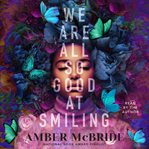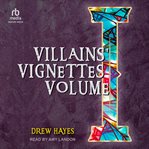Review by Booklist Review
Whimsy has once again succumbed to the weight of her clinical depression, the grief of some half-obscured memory sending her into a spiral of sorrow that lingers in a way it doesn't for her mother and father. Separated from her parents, the soil that sustains her, and the beckoning forest edge that claims her tears, Whimsy finds herself in a rehabilitation program where she meets a fae-boy, whose body boasts an eerily familiar garden, wings that catch the light, and a closeness to her she can't quite explain. When Faerry disappears into the very forest that has for years been the center of Whimsy's sadness, she knows that the only way to save Faerry, and for them to both get out, is a journey through. In her stunning tale of grief, sorrow, and the difficult journey toward healing and reconciliation, McBride expertly weaves elements of fairy tale, fantasy, and Hoodoo into stunning free-verse poetry that explores the intricacies of mourning as a sustained yet ever evolving space for sadness that so often we may feel compelled to suppress. The emphasis on fairy tales and flora is an added treat, offering a new perspective on familiar narrative elements. Readers will revel in the depth of Whimsy and Faerry's relationship, all the while finding solace and relief in the calculated messiness of their search for wholeness. This is a spitfire sophomore offering from McBride, one that refuses to be rushed, mishandled, or misinterpreted.
From Booklist, Copyright (c) American Library Association. Used with permission.
Review by Publisher's Weekly Review
McBride, the author of Me (Moth), employs lilting poetic wordplay to weave familiar fairy tales with original, resonant fables in this haunting verse novel. When human poet Whimsy is hospitalized with clinical depression, she meets and immediately connects with a Fae boy named Faerry. After getting discharged, she learns that Faerry has just moved into a house on Whimsy's street and soon realizes their intense familiarity hints at a shared past that neither of them seems to remember. Working together to unearth buried memories, the teens battle a fantastical physical embodiment of sorrow and struggle to face their inexplicable fear of the forest at the end of their street. Sparse yet expressive verse ("We are floating in a circle/ made from hope & crystal wings") grounds mystical happenings, such as Whimsy and Faerry's meetings with characters from classic fairy tales and folklore, including Anansi, Baba Yaga, and Snow White. Drawing from personal experience, as detailed in a beginning note, McBride delivers a dark, whimsical adventure that viscerally depicts experiences of clinical depression, generational trauma, racism, self-harm, suicidal ideation, and survivor's guilt. A glossary of the fairy tales referenced concludes. Whimsy and Faerry are Black. Ages 14--17. Agent: Rena Rossner, Deborah Harris Agency. (Jan.)
(c) Copyright PWxyz, LLC. All rights reserved
Review by School Library Journal Review
Gr 9 Up--McBride presents another affecting author/narrator performance of her sophomore novel in verse, repeating the dual-credited success of her 2021 National Book Award Finalist debut, Me (Moth). Her opening "A Note Before Entering the Forest," which warns of "clinical depression, self-harm & suicide," sets a somber tone throughout. Atmospheric music announces each new chapter in the recovery journey of two teens, Whimsy and Faerry, who meet while hospitalized. The members of their group therapy circle to which Whimsy "assign[s] each person a Fairy Tale name" will play vital roles in the pair's survival. An author's note insistently reminds, "Stories keep the world intact." Whimsy & Faerry's Playlist follows, ending with acknowledgments that underscore the lifesaving power of poetry. VERDICT McBride's self-described "book about depression & pain & hope" is a healing balm for suffering souls.
(c) Copyright Library Journals LLC, a wholly owned subsidiary of Media Source, Inc. No redistribution permitted.
Review by Horn Book Review
This ambitious novel in verse uses magical realism and fairy-tale elements to explore clinical depression and highlight the various stages of grief. Whimsy is back at the hospital again, where she has been forced to go numerous times since she was diagnosed with clinical depression. She recognizes the sadness and grief she feels, and she knows numerous coping mechanisms to manage her feelings, but she still struggles daily with her (gradually revealed) trauma. Although she is used to the hospital routine, this visit is different because she meets Faerry, a boy who knows sorrow that mirrors her own. Their bond is strengthened after their release from the facility, and together they decide to help each other cope with the pain that affects them both. When Faerry enters the Haunting Forest, a sinister plot of land that feeds on pain, Whimsy follows. If they cannot make it through, sorrow might swallow them whole, leaving nothing but death in its wake. McBride's (Me (Moth), rev. 1/22) lush free-verse poetry creates a vibrant world teetering between the real and the magical, but the images and atmosphere act as background to serious issues of trauma and suicidality. Although the subject matter is heavy, the book serves as a reminder that, as sorrow and loss come for everyone, no one is alone. Back matter addresses mental health and expands on the story's elements from fairy tales and folklore. S. R. ToliverJanuary/February 2023 p.87 (c) Copyright The Horn Book, Inc., a wholly owned subsidiary of Media Source, Inc. No redistribution permitted.
(c) Copyright The Horn Book, Inc., a wholly owned subsidiary of Media Source, Inc. No redistribution permitted.
Review by Kirkus Book Review
Being hospitalized again for suicidal ideation is a bleak situation for anyone, especially Whimsy, a girl with the soul of a poet. Waiting to go home to parents struggling to connect with her (her older brother has been missing for a decade) and a school where she is one of few Black students, a bright spot appears in Whimsy's life. Green-haired Faerry--former fellow patient, new neighbor, and an actual Fae--befriends her. After he is lost in the Forest near her home, Whimsy sets off to find him and enters a garden populated by folklore and fairy-tale figures. A witch, a siren, a princess, and ghosts challenge and help her as she and Faerry struggle to escape Sorrow, the sinister entity keeping them from finding their way home. The choice of verse to tell this absorbing story is a strong one; readers are drawn along by the intense and vivid imagery, and the depictions of clinical depression, guilt, and grief are visceral. McBride explores the impact of the intersection between Blackness and mental illness on Faerry and Whimsy and the difficulties of two unusual young people finding refuge through friendship from the pressures the world exerts on them. Whimsy's practice of Hoodoo and the empowerment she receives from the magic inside and around her help her contend with her depression and unravel her grief without negating a brutal, yet ultimately hopeful, reality. Important messages uniquely delivered. (foreword, author's note, resources, glossary, playlist) (Verse novel. 12-18) Copyright (c) Kirkus Reviews, used with permission.
Copyright (c) Kirkus Reviews, used with permission.





